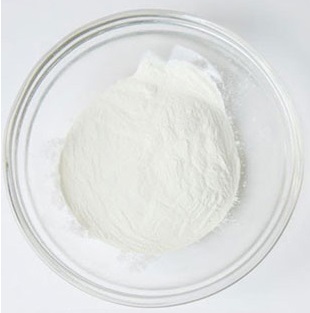Your Location:Home > Products > Food Additives > Lactic Acid


CasNo: 598-82-3
MF: C3H6O3
Appearance: YELLOWISH LIQUID
Delivery Time: one week
Throughput: 1 million|Metric Ton|Year
Purity: 99%
Lactic Acid is a chemical compound that plays a role in several biochemical processes.
Also known as milk acid, is a chemical compound that plays a role in several biochemical processes.
In animals, L-lactate is constantly produced from pyruvate via the enzyme lactate dehydrogenase (LDH) in a process of fermentation during normal metabolism and exercise. It does not increase in concentration until the rate of lactate production exceeds the rate of lactate removal which is governed by a number of factors including: Monocarboxylate transporters, concentration and isoform of LDH and oxidative capacity of tissues. The concentration of blood lactate is usually 1-2 mmol/L at rest, but can rise to over 20 mmol/L during intense exertion. Industrially, Lactic Acid fermentation is performed by Lactobacillus bacteria, among others. These bacteria can operate in the mouth; The acid they produce is responsible for the tooth decay known as caries. In medicine, lactate is one of the main components of Ringer's lactate or lactated Ringer's solution (CompoundSodium Lactate or Hartmann's Solution in the UK). This intravenous fluid consists of sodium and potassium cations, with lactate and chloride anions, in solution with distilled water in concentration so as to be isotonic compared to human blood. It is most commonly used for fluid resuscitation after blood loss due to trauma, surgery, or a burn injury.
|
ITEM |
STANDARD |
|
APPEARANCE |
YELLOWISH LIQUID |
|
ASSAY |
80% MIN |
|
HEAVY METALS(AS Pb) |
0.001% MAX |
|
IRON |
0.001% MAX |
|
ARSENIC |
0.0003% MAX |
|
CHLORIDE |
0.2% MAX |
|
SULPHATED ASH |
0.1% MAX |
|
RESIDUE ON IGNITION |
0.1% MAX |
|
SUGAR |
PASS TEST |
|
ITEM |
STANDARD |
|
Content % |
85-90 |
|
chloride % |
=<0.002 |
|
sulphate % |
=<0.01 |
|
iron % |
=<0.001 |
|
residualon ignition |
=<0.1 |
|
heavy metal % |
=<0.001 |
|
arsenate % |
=<0.0001 |
|
free carbonizing % |
no brown color at interface |
|
reducing sugar % |
no red sediment |